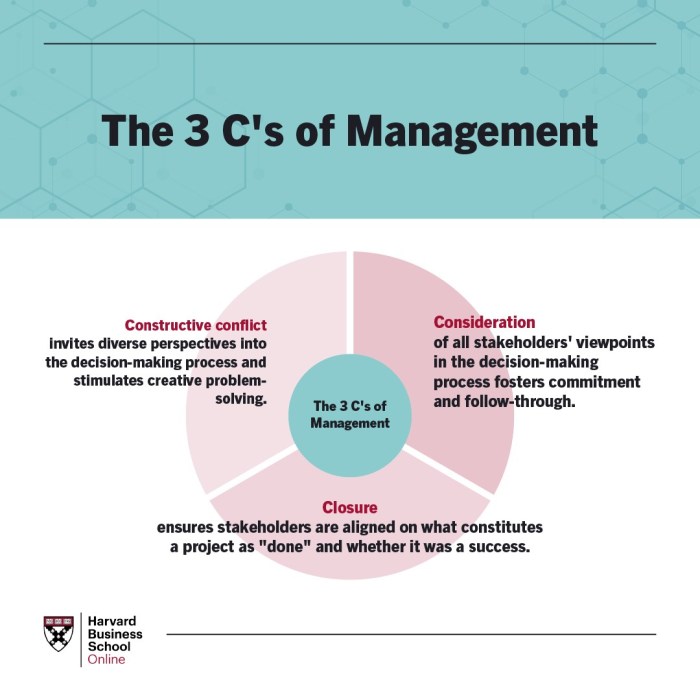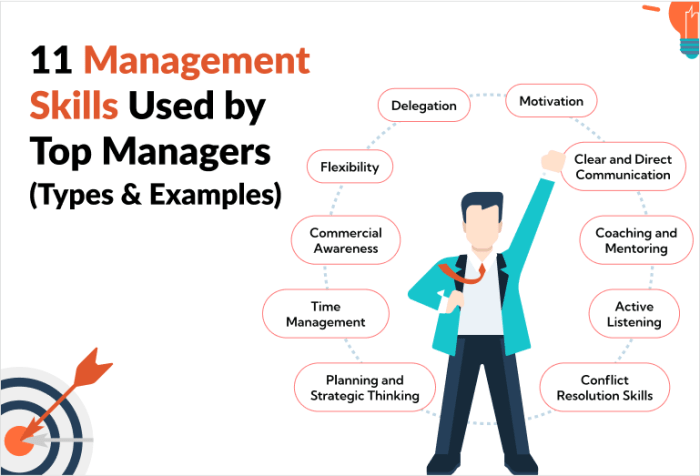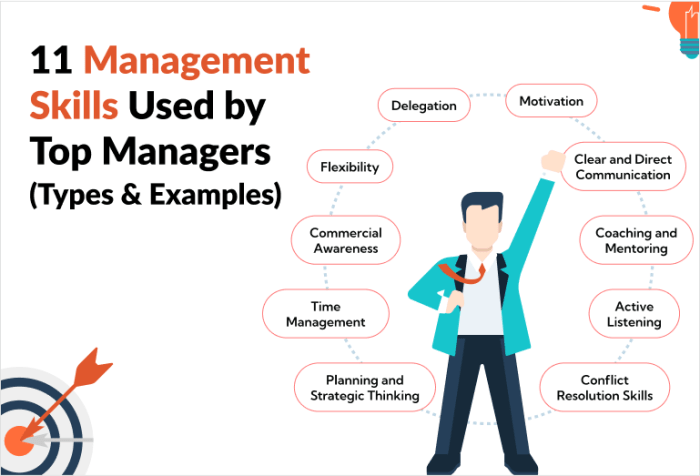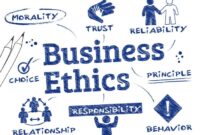How to apply management role experience? It’s a question that many professionals grapple with, especially when transitioning to a new career or seeking a promotion. The key lies in effectively showcasing your abilities and achievements, highlighting your leadership skills, and demonstrating how your experience translates to the specific requirements of the role.
This guide will walk you through the process of quantifying your management experience, demonstrating your skills, and tailoring your application to stand out from the competition. We’ll also explore the importance of networking and interview preparation, equipping you with the tools and strategies to make a compelling case for your candidacy.
Understanding Management Role Experience

Management role experience is a valuable asset in the job market, demonstrating your ability to lead, motivate, and achieve results. Understanding the key elements of management experience and how to effectively showcase it on your resume and in interviews can significantly increase your chances of landing your dream job.
Key Elements of Management Role Experience
Management experience encompasses a wide range of responsibilities and skills. To effectively demonstrate your experience, it’s crucial to highlight the key elements that showcase your capabilities.
- Leadership:This involves guiding and motivating teams towards achieving common goals. Examples include setting clear objectives, delegating tasks effectively, providing constructive feedback, and fostering a positive work environment.
- Decision-making:Managers are often required to make critical decisions based on available information and analysis. This includes assessing risks, considering different perspectives, and making informed choices that impact the team and the organization.
- Communication:Effective communication is essential for successful management. This involves clear and concise communication with team members, stakeholders, and senior management. It also includes active listening, understanding different perspectives, and conveying information effectively.
- Problem-solving:Managers are expected to identify and address problems proactively. This involves analyzing situations, developing solutions, and implementing strategies to overcome challenges.
- Performance Management:Managing employee performance involves setting expectations, providing regular feedback, and recognizing achievements. This also includes addressing performance issues and providing support and development opportunities for team members.
Examples of Management Responsibilities and Achievements
To effectively showcase your management experience, it’s important to provide concrete examples of your responsibilities and achievements. This helps potential employers understand the impact you have made in previous roles.
- Increased team productivity by 15%by implementing a new project management methodology. This demonstrates your ability to drive results and improve efficiency.
- Successfully led a team of 10 engineersin the development of a new product that generated $1 million in revenue in the first year. This highlights your ability to lead and manage complex projects.
- Developed and implemented a new training programthat resulted in a 20% increase in employee satisfaction. This showcases your commitment to employee development and creating a positive work environment.
- Negotiated a new contract with a key supplierthat resulted in a 10% reduction in costs. This demonstrates your ability to make strategic decisions and negotiate favorable outcomes.
- Successfully managed a budget of $5 million, ensuring efficient allocation of resources and achieving project goals. This highlights your financial management skills and ability to operate within budget constraints.
Types of Management Roles and Transferable Experience
Management experience can be gained in a variety of roles, across different industries and sectors. While the specific responsibilities may vary, the core skills and principles of management are transferable.
Get the entire information you require about how the eu plans to fight big tech in on this page.
- Project Management:Project managers are responsible for planning, executing, and closing projects within budget and time constraints. This experience can be valuable for roles that require strong organizational, planning, and problem-solving skills.
- Team Leadership:Team leaders are responsible for guiding and motivating a team towards achieving specific goals. This experience demonstrates leadership, communication, and interpersonal skills that are highly transferable to other management roles.
- Supervisory Roles:Supervisors are responsible for overseeing the work of a team of employees. This experience develops skills in delegation, performance management, and conflict resolution, which are essential for effective management.
- Sales Management:Sales managers are responsible for leading and motivating sales teams to achieve revenue targets. This experience develops strong communication, negotiation, and coaching skills that are valuable in other management roles.
- Operations Management:Operations managers are responsible for overseeing the day-to-day operations of a business or department. This experience develops skills in process improvement, efficiency, and resource management, which are transferable to other management positions.
Quantifying Management Experience
Your management experience is valuable, but it’s crucial to showcase it effectively. To make your resume and interviews stand out, you need to quantify your achievements and responsibilities. This means using concrete numbers, data, and metrics to demonstrate the impact you made in your previous roles.
Quantifying Management Experience Using Metrics
| Metric | Example |
|---|---|
| Increased Revenue | “Increased sales by 15% over a two-year period through strategic marketing campaigns and team development initiatives.” |
| Reduced Costs | “Reduced operational expenses by 10% by implementing a new inventory management system and negotiating better supplier contracts.” |
| Improved Efficiency | “Streamlined the hiring process by 20% by introducing a new online application system, resulting in faster onboarding and reduced recruitment costs.” |
| Increased Productivity | “Improved team productivity by 12% by implementing a new project management system and providing regular performance feedback.” |
| Improved Employee Retention | “Reduced employee turnover by 15% by implementing a new employee recognition program and creating a more positive work environment.” |
Action Verbs to Describe Management Responsibilities
Using strong action verbs can paint a vivid picture of your management skills and responsibilities. Here are some verbs to consider:
- Developed
- Led
- Managed
- Motivated
- Coordinated
- Implemented
- Supervised
- Delegated
- Trained
- Evaluated
- Negotiated
- Communicated
- Collaborated
Examples of Quantifying Achievements
Here are some examples of how to quantify your management achievements:
- “Increased customer satisfaction ratings by 10% by implementing a new customer service training program.”
- “Reduced project completion time by 15% by introducing a new project management methodology.”
- “Successfully launched a new product line that generated $1 million in revenue within the first year.”
- “Developed and implemented a new sales strategy that increased sales by 20%.”
- “Led a team of 10 employees to achieve a 15% increase in productivity.”
Demonstrating Management Skills
Now that you understand what management experience is and how to quantify it, it’s time to showcase your skills. Recruiters want to see how you’ve applied your knowledge and abilities in real-world situations. This section will guide you on effectively demonstrating your management skills in your application materials.
Demonstrating Leadership Skills
Leadership is a core management skill. Highlighting your leadership experience involves providing concrete examples of how you influenced and motivated others to achieve common goals. Here’s how to demonstrate your leadership skills:
- Describe your role in leading a team or project.Clearly define your responsibilities and the scope of your leadership role. For instance, “As team lead for the [project name], I was responsible for [list key responsibilities, such as planning, execution, resource allocation, and communication].”
- Highlight your achievements.Quantify your accomplishments whenever possible. For example, “Under my leadership, the team successfully [achieved specific results, such as increased sales by 15%, completed the project ahead of schedule, or reduced production costs by 10%].”
- Illustrate your leadership style.Describe how you approached challenges and motivated your team. Did you use a collaborative or directive approach? Did you empower team members or provide guidance and support?
Demonstrating Communication Skills
Effective communication is essential for any manager. Showcase your ability to communicate clearly, concisely, and persuasively with diverse audiences.Here’s how to demonstrate your communication skills:
- Provide examples of your written and verbal communication skills.This could include reports, presentations, emails, or meetings. Describe the context, your communication goals, and the impact of your communication efforts.
- Highlight your ability to communicate effectively with different stakeholders.For example, did you successfully negotiate with clients, build consensus with team members, or present complex information to senior management? Detail the situation, your approach, and the outcome.
- Demonstrate your ability to listen actively and provide constructive feedback.Describe how you sought feedback from others, addressed concerns, and provided clear and actionable feedback to your team members.
Demonstrating Delegation Skills
Delegation is a crucial management skill that allows you to effectively allocate tasks and responsibilities to your team. Highlighting your delegation skills demonstrates your ability to trust and empower others.Here’s how to demonstrate your delegation skills:
- Describe situations where you delegated tasks effectively.Clearly Artikel the tasks, the individuals you delegated to, and the criteria for success. For example, “I delegated the task of [specific task] to [team member name] because of their expertise in [relevant area]. I provided clear instructions, timelines, and resources to ensure their success.”
- Highlight your ability to provide clear instructions and support.Describe how you provided training, guidance, and feedback to your team members. Did you monitor progress and offer assistance when needed?
- Demonstrate your ability to hold others accountable.Explain how you set expectations, tracked progress, and provided feedback on delegated tasks. Did you provide constructive feedback to improve performance?
Demonstrating Problem-Solving Skills
Problem-solving is an essential skill for any manager. Showcase your ability to identify, analyze, and resolve challenges effectively.Here’s how to demonstrate your problem-solving skills:
- Describe specific problems you encountered and how you addressed them.Explain the situation, your approach, and the outcome. For example, “When a major project was delayed due to [reason], I [steps taken, such as analyzing the root cause, developing a solution, and implementing it]. As a result, the project was back on track and completed successfully.”
- Highlight your ability to think critically and creatively.Describe how you analyzed the problem, identified potential solutions, and evaluated their feasibility. Did you use data-driven insights or consider multiple perspectives?
- Demonstrate your ability to implement solutions and monitor their effectiveness.Explain how you tracked progress, measured results, and made adjustments as needed. Did you ensure the solution was sustainable and addressed the underlying issue?
Comparing and Contrasting Methods for Showcasing Management Skills
Here is a table that compares and contrasts different methods for showcasing your management skills:
| Method | Advantages | Disadvantages |
|---|---|---|
| Specific Examples | Provides concrete evidence of your skills and abilities. | May be time-consuming to develop and write. |
| Quantifiable Results | Demonstrates the impact of your management skills. | May not be applicable to all management roles. |
| Skills-Based Resume | Highlights your relevant management skills and experience. | May not provide enough context or detail about your achievements. |
| Cover Letter | Allows you to tailor your message to the specific job requirements. | May not be as detailed as other methods. |
| Portfolio | Provides a visual representation of your management skills and accomplishments. | May not be suitable for all management roles. |
Tailoring Your Application: How To Apply Management Role Experience

You’ve done the hard work of understanding your management experience and quantifying its impact. Now it’s time to tailor your application to the specific requirements of the management role you’re targeting. This crucial step ensures your application resonates with the hiring manager and showcases your suitability for the position.
Identifying Specific Requirements
Before you start tailoring, thoroughly analyze the job description. Identify the key responsibilities, required skills, and desired experience. Pay attention to specific s and phrases used to describe the ideal candidate. This will help you understand what the employer is looking for and how to highlight your relevant experience.
Tailoring Your Resume and Cover Letter, How to apply management role experience
Once you understand the job requirements, you can tailor your resume and cover letter to align with them. Here are some tips:
- Use s from the job description.Incorporate relevant s throughout your resume and cover letter, particularly in your skills section and when describing your experience. This helps your application stand out during automated screening processes and ensures your application is easily searchable.
- Highlight relevant experience and skills.Focus on the experiences and skills that are most closely aligned with the job requirements. Use specific examples to quantify your achievements and demonstrate your impact. For example, instead of saying “managed a team,” provide details like “managed a team of 10 employees, increased productivity by 15%, and reduced customer complaints by 20%.”
- Customize your cover letter.Don’t simply send a generic cover letter. Tailor it to the specific job and company. Address the employer directly, mention specific aspects of the job description that resonate with you, and explain how your skills and experience make you a strong fit.
- Proofread carefully.Typos and grammatical errors can make a negative impression. Take the time to proofread your application materials carefully before submitting them.
Highlighting Relevant Experience and Skills
Here are some examples of how to highlight relevant experience and skills in your application materials:
- Leadership Experience:“Led a team of 5 engineers to successfully launch a new product, exceeding revenue targets by 20%.”
- Project Management:“Managed a complex project with a budget of $1 million, delivering on time and within budget.”
- Communication Skills:“Presented a strategic plan to senior management, resulting in the approval of a $5 million investment.”
- Problem-Solving Skills:“Identified and resolved a critical operational issue that was impacting customer satisfaction, leading to a 10% increase in customer retention.”
- Teamwork Skills:“Collaborated with cross-functional teams to develop and implement a new marketing campaign, resulting in a 30% increase in sales.”
Networking and Interview Preparation

Networking is crucial for securing a management role. It allows you to connect with industry professionals, gain insights into current trends, and learn about open positions. Building relationships with people in your field can open doors to opportunities you might not find through traditional job searches.
Resources for Networking and Finding Management Roles
Networking can be a powerful tool for finding management roles. There are several resources available to help you connect with professionals in your field and learn about open positions.
- Professional Organizations:Joining professional organizations related to your industry is an excellent way to meet peers, attend events, and access resources. Many organizations have online forums, networking events, and job boards specifically for members.
- Industry Events:Attending conferences, workshops, and seminars is a great way to meet people in your field and learn about new trends. These events often feature networking sessions and opportunities to connect with potential employers.
- Online Networking Platforms:Platforms like LinkedIn, Meetup, and industry-specific forums offer opportunities to connect with professionals in your field. You can join groups, participate in discussions, and reach out to people directly.
- Mentorship Programs:Seeking mentorship from experienced professionals in your field can provide valuable guidance and support. Many organizations offer mentorship programs that connect aspiring managers with seasoned leaders.
- Job Boards:Websites like Indeed, Glassdoor, and LinkedIn Job Boards are valuable resources for finding management roles. Many of these platforms allow you to filter your search by experience level, industry, and location.
Interview Preparation
Preparing for an interview is crucial for showcasing your management experience effectively.
- Practice STAR Method:The STAR method is a common interview technique that involves describing a situation, task, action, and result. Practice using this method to answer questions about your management experience, focusing on quantifiable results and demonstrating your skills.





